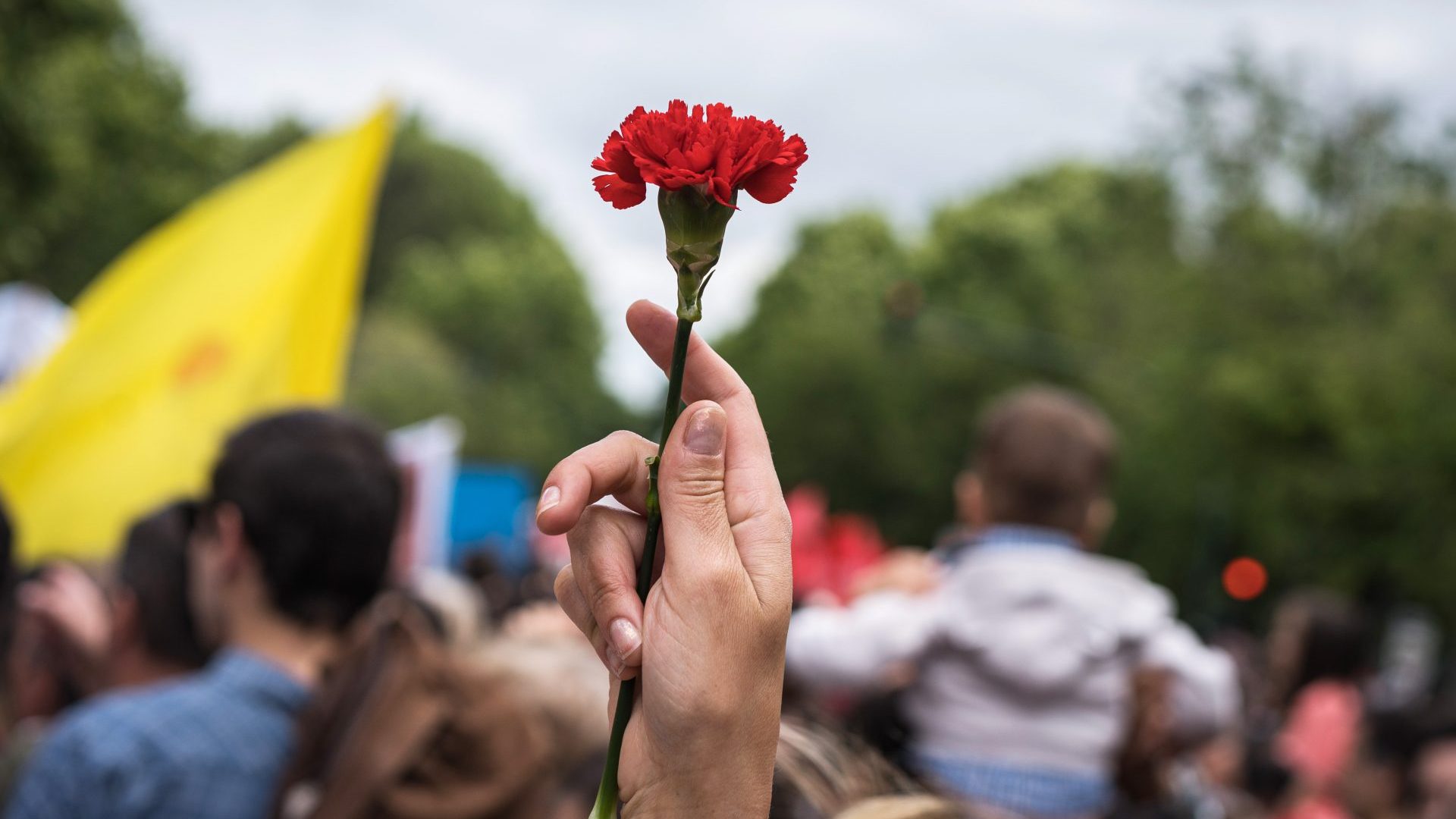In Portugal, there have been massive demonstrations to mark the 50th anniversary of the coup that ended Europe’s longest dictatorship. These marches have energised opposition to the far right in the run-up to European elections that will be a test for all sides, including for the minority government led by Luís Montenegro of the centre-right PSD.
The rise of Chega, whose leader, André Ventura, casts himself as a people’s champion against a corrupt elite, and which takes a tough stance on crime and immigration – has caused alarm here in Portugal. The party quadrupled its seats in the March legislative elections.
Add to that ultra-conservative pronouncements on abortion and “traditional” families by figures such as Pedro Passos Coelho, the former PSD prime minister, and the result is concern about a broader saudosismo – nostalgia for pre-1974 days – that could unify the right.
But the scale of the traditional April 25 marches across the country were a surprise – the one in Lisbon was the biggest ever. This festival of freedom is not policed like a protest, so there were no official figures, but one independent estimate put the crowd at 220,000, twice last year’s figure.
Although the political right never shows up to the Lisbon march in large numbers, and the PSD was not officially represented (although its youth wing was), the speaker of parliament, Pedro Aguiar-Branco, a former PSD minister, made a point of attending.
The Carnation Revolution – so called because civilians stuffed the flowers into the barrels of soldiers’ guns that were never to be fired – clearly retains (and may even have increased) its power to unite.
“It won’t be easy for this flower to wilt” was a typical headline, on an article in Expresso newspaper by Daniel Oliveira, a left wing commentator, who wrote: “We showed that a noisy majority will not remain silent in the face of saudosista bluster.”
In Público, the columnist Pedro Norton – a businessman and nobody’s idea of a leftist – called it “a rare moment of communion and collective intelligence” in a country in which left and right have long disputed the meaning of April 25.
While Chega’s election vote was highest among the young, many youngsters on the Lisbon march said they had come to express their opposition to the party. And people attending an earlier re-enactment of the 1974 siege of the barracks where regime officials holed up also said the anniversary brought a sense of urgency.
“It’s important for them to know and feel what happened here,” said one man watching his children clamber on a vintage tank, admitting he had never attended any April 25 event before.
Guilherme Carreira was a corporal back in 1974, and took part in the coup. He said that last week, driving from the army base at Santarém, 50 miles north of Lisbon, into the capital past onlookers shouting “Vitória!” – just as they had back in 1974 – was a highly emotional experience.
“The departure of the column from Santarém yesterday had thousands and thousands of people, and today in Lisbon it was unforgettable, unforgettable,” he said.
The popular and largely bloodless nature of the revolution is part of its mythology. It also marked the start of the so-called “third wave of democratisation” that swept through dozens of countries in Europe, South America and Asia.
That made this anniversary “so important for Europe’s democracy,” said Emmanuel Macron in a video message, in which he recalled the hundreds of thousands who fled Portugal for France during the dictatorship. “Today’s Europe owes a lot to the courage of the captains of April.”
The revolution hastened the end of Portugal’s empire, and triggered the country’s turn to Europe. The Portuguese remain one of the most Europhile nations.
Even so, after the March election, the then prime minister António Costa flew to Brussels to reassure EU officials that Chega’s gains were not a sign that Portugal was turning away from Europe. It had, he said, “unlike other far right parties in other European countries”, never shown “any attitude of Euroscepticism” – a curious comment for a socialist who presumably wants to see the far right defeated at the ballot box.
Alison Roberts is a journalist based in Lisbon, currently freelance correspondent for BBC News



